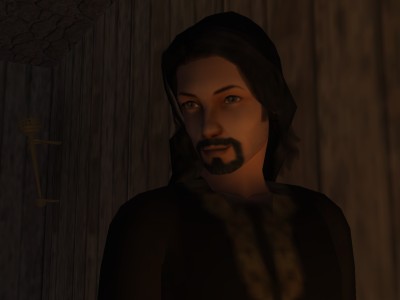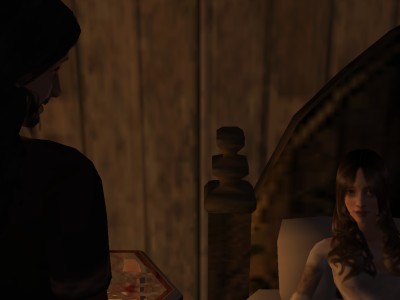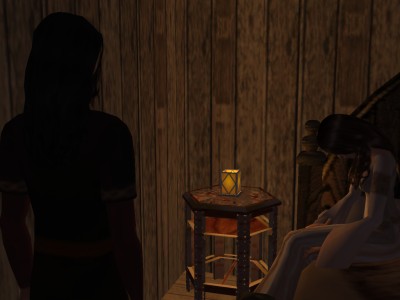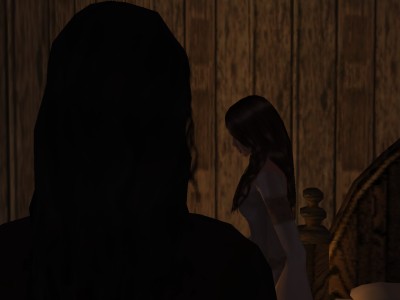Sigefrith cringed as the door swung shut with a bang—he hadn’t dreamed that he would find Maud in the room. But she didn’t move. He hadn’t woken her.
He stepped quietly around the bed and looked down at her.

She still wore her dress, but she had already taken her hair out of its braids. He loved to see her with her hair down. It made her look less like a queen, and more like a soft and touchable girl. And her face was soft, too, in the dim light and the abandon of sleep.

Had she come to wait for him? Or had she come in to lie alone in their bed a while, knowing he wouldn’t be up for hours, and then fallen asleep before she could slip away? Either possibility was touching.
He hated to wake her—and then he realized he didn’t have to, not right away. As long as she slept he could watch her without shame. So he looked his fill, and then decided it might be sweet to wake her, too, and see her surprise and confusion, and then—perhaps—somehow all would be well between them again.
Colburga had told him to wait. Maud was unhappy about being left alone when he went away—it stood to reason she would get tired of being left alone when he was here as well. He was skeptical, but he trusted Colburga—she had been right before. Still, it had been a difficult few months. He loved his wife.
“Maud,” he said softly, and then once more slightly louder when she didn’t stir.

Maud opened her eyes and blinked at him, as if she didn’t recognize him at first. He smiled—she was too beautiful, like a fawn surprised at the edge of the forest, as he had seen her the first time in the garden of the abbey.

She threw her legs over the side of the bed and sat up, but she looked into her lap, and her long hair hung in a curtain before her face. She looked almost humble—it seemed almost a gesture of submission. Oh, he wouldn’t make this difficult for her, the poor darling. He wouldn’t ask for explanations or try to explain—he wouldn’t say anything, only accept her return as if she had never been away.

She stood, but still she did not look at him. Would he dare to speak before she did? He had hoped she would give some sign of how he should proceed. But she stood a long while, a slender silhouette against the candlelight, her long neck bent in a gesture of sadness or shame.
“O Melancholy Maud,” he murmured.
Her shoulders shook, and he finally dared to lay an arm over them.

The poor dear—how she seemed to suffer. He had never meant to humiliate her. Surely Colburga had been wrong. What if Maud had thought he no longer cared? The thought frightened him, and he pulled her against his chest.
And then Maud truly began to cry.

Sigefrith was horrified. Had it been this way for her all these months? He saw her every day and never dreamed—she hid so well behind her cold pride—he should have followed his own heart and never listened to Colburga. “Maud, Maud,” he whispered. “Forget all of this. I shall not go away again.”
Maud only cried.
“What is it, dear? Tell me I’ve been wrong.”
“Oh, Sigefrith,” she sobbed. “I only want—”
“Yes?” he prompted when she did not continue.
“I only want a garden!”
A garden! He chuckled a little in relief. “A garden! My Maud, you shall have the finest garden man has seen since the Fall. You poor dear, you love gardens, don’t you? Remember the morning I found you?”
Maud never answered, but she allowed him to comfort her, allowed him to hold her.







Is she going to come clean? What is she up to?